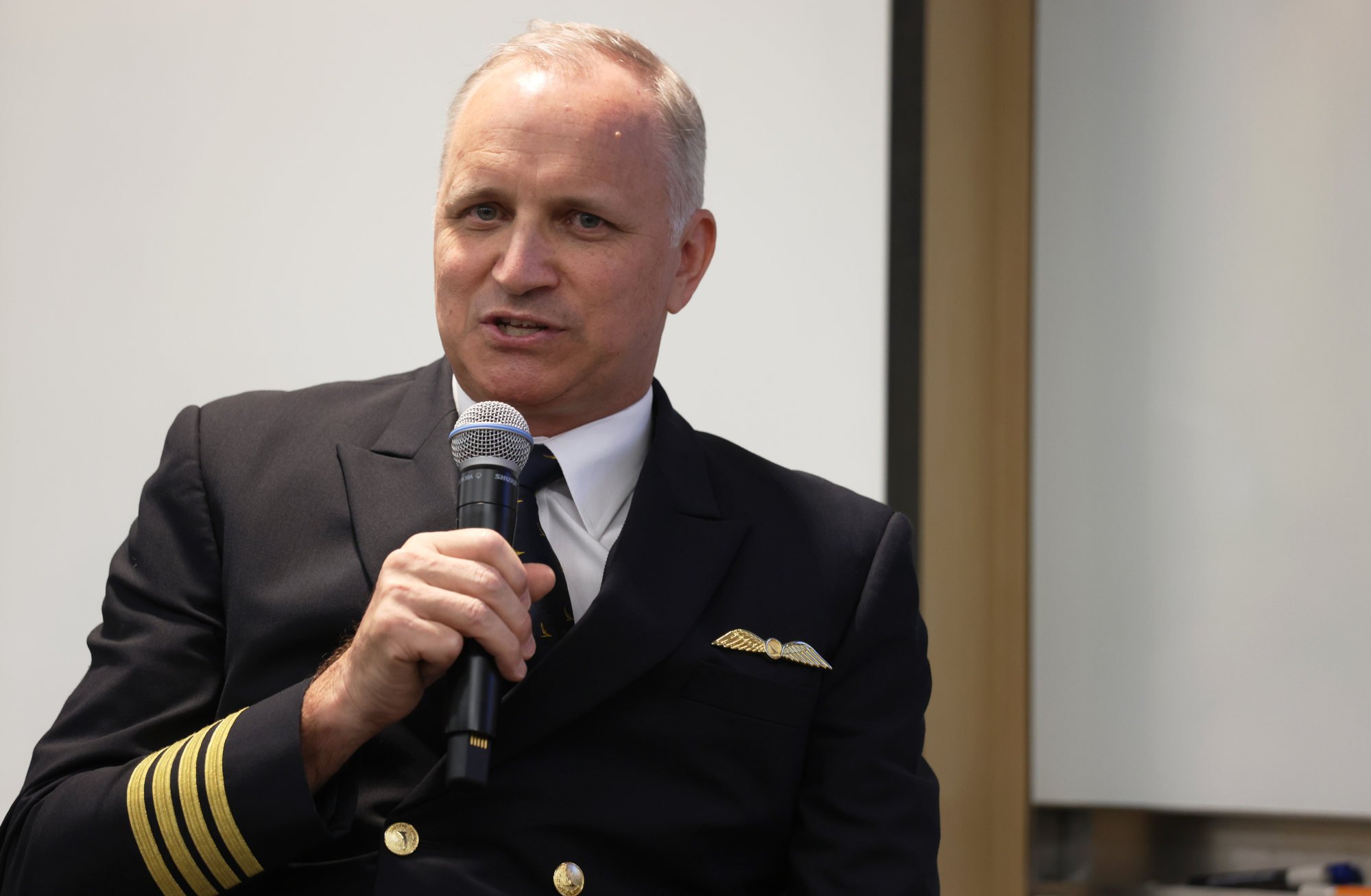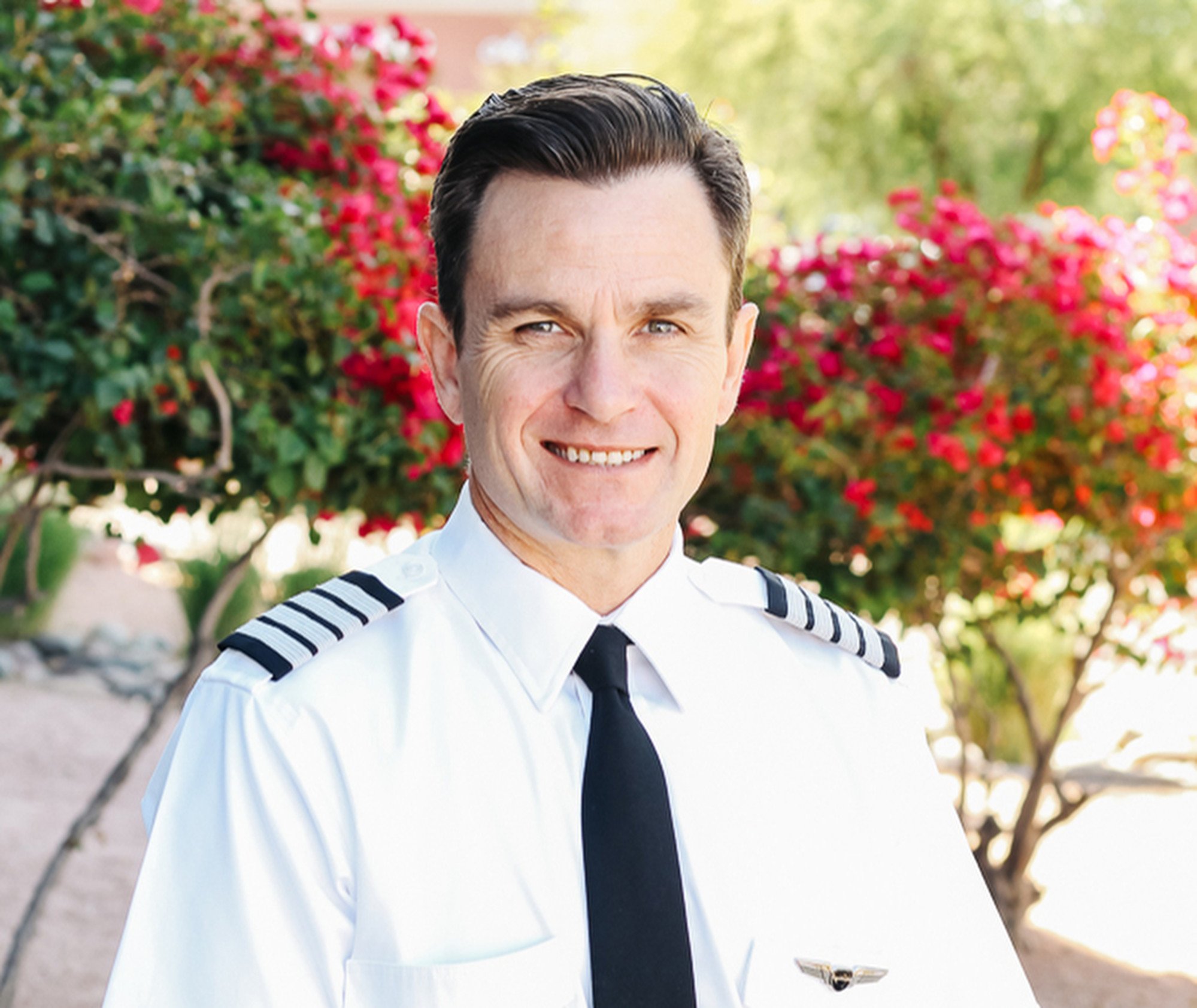
Hong Kong’s Cathay Pacific cadet pilots to stay at US flight school despite solo flight ban
- Cathay Pacific’s Tim Burns says trust in US-based AeroGuard Flight Training Centre remains, despite solo flight ban for city trainees after string of mistakes
Tim Burns, Cathay Pacific’s general manager for flying, said on Tuesday the airline’s confidence in Arizona-based AeroGuard Flight Training Centre was unchanged and that there was no cause for concern about the cadets’ professional standards as there were several assessments made throughout their training course.
“They have amazing facilities for pilot training,” Burns said. “In Arizona, they assured us that the weather was good enough to do a lot of flying … so our confidence with the flying school has not changed.
“And it would be a shame to just point to a couple of incidents which happened recently to say that the cadet programme, or even our relationship with AeroGuard, should come under scrutiny.”

The airline said last week that it was taking the incidents seriously.
Jay Meade, AeroGuard’s vice-president and head of training, told Cathay cadets in an email he had been forced to ground them pending an investigation after three incidents in as many weeks.
Meade said the incidents – a wingtip collision with a fixed object, a bounced landing which caused a substantial impact to the aircraft’s propeller and a plane that ran off a runway – were significant.
He added that the pilots in command had decided to continue with their mission, but insisted they should have spoken to their duty flight instructor before they carried on.
The cadets were not “meeting expectations regarding training, guidance and direction, as related to the application of proper aeronautical decision making”, Meade said.

Burns emphasised there were stringent assessment checkpoints to ensure that only those who passed each stage would be allowed to continue to the next phase of training.
“We monitor the cadets as they go through and they don’t proceed to the next phase until they pass that,” Burns said. “So, in a sense, we’re constantly checking.
“We get feedback from the flying school.”
Burns added there would be no delays to the one-year cadet training programme as the suspension of solo flying involved a minor part of the course.
“The solo flying is just one small proportion so the students will continue on the rest of their training,” he said.
“Some will have some of their solo flying delayed while Aeroguard ensures that the cadets are aware of how to report any incidents and that everyone follows the requirements of the flying school.
“Once that’s satisfied, then they will resume the solo flying so we’re not expecting any delays on the length of the course.”
The centre, one of the largest flight training academies in the US, signed a long-term agreement with Cathay in December 2022 as part of the airline’s plans to train several hundred new pilots a year.
The centre, which has more than 20 years of experience in the field, has trained more than 7,000 pilots from around the world.
AeroGuard added it would support Cathay in its efforts to work towards a global recovery of airline travel in the wake of the devastation wreaked by the pandemic.
Cathay welcomed back its last aircraft from long-term overseas parking last Thursday, after nearly four years in Alice Springs, Australia because of the Covid-19 pandemic.
The return of the plane marked the end of its pandemic crisis that led to more than 85 aircraft being stored temporarily in the Australian desert.
The Airbus A330, registered B-HLV, the first of its planes to arrive at the Alice Springs storage area in July 2020 as the pandemic paralysed global air travel, was returned to its home base as part of the progressive reactivation of aircraft after restrictions were lifted.
The company said more than 16,000 checks were performed on its planes left idle in Alice Springs and 800,000 labour hours were spent on aircraft preservation, and periodic and reactivation maintenance.
Alex McGowan, the company’s chief operations and service delivery officer, said the deactivation operation was a once-in-a-lifetime task of an unprecedented scale and complexity.
“An incredible amount of work goes into keeping an aircraft safe and protected when it isn’t flying and then reactivating it for entry back into regular service,” he said.
“To do this … is a phenomenal achievement.”
Bob Taylor, Cathay’s general manager for engineering operations, said the fleet of aircraft in Australia had undergone regular checks to keep them in good condition and ensure a safe journey back to Hong Kong.
“When it comes to reactivating the aircraft, a rigorous series of checks and inspections must first be accomplished to ensure the aircraft is safe to ferry back from its overseas parking facility,” he added.

